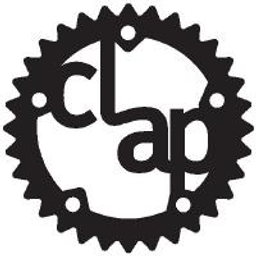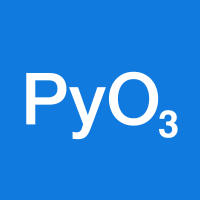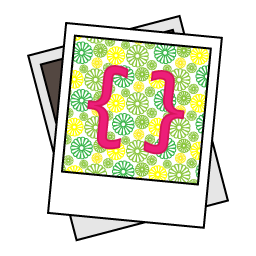Programmable, reproducible, interactive documents
👋 Intro • 🚴 Roadmap • 📜 Docs • 📥 Install • 🛠️ Develop
🙏 Acknowledgements • 💖 Supporters • 🙌 Contributors
Stencila is a platform for creating and publishing, dynamic, data-driven content. Our aim is to lower the barriers for creating truly programmable documents, and to make it easier to publish them as beautiful, interactive, and semantically rich, articles and applications. Our roots are in scientific communication, but our tools are useful far beyond.
This is v2 of Stencila, a rewrite in Rust focussed on the synergies between three recent and impactful innovations and trends:
-
Conflict-free replicated data types (CRDTs) for de-centralized collaboration and version control.
-
Large language models (LLMs) for assisting in writing and editing, prose and code.
-
The blurring of the lines between documents and applications as seen in tools such as Notion and Coda.
We are embarking on a rewrite because CRDTs will now be the foundational synchronization and storage layer for Stencila documents. This requires fundamental changes to most other parts of the platform (e.g. how changes are applied to dynamic documents). Furthermore, a rewrite allow us to bake in, rather than bolt on, new modes of interaction between authors and LLM assistants and add mechanisms to mitigate the risks associated with using LLMs (e.g. by recording the actor, human or LLM, that made the change to a document). Much of the code in the v1 branch will be reused (after some tidy-ups and refactoring), so v2 is not a complete rewrite.
Simultaneously editing the same document in different formats
Here, a Stencila Article has previously been saved to disk as a CRDT in main.sta. Then, the sync command of the CLI is used to simultaneously synchronize the CRDT with three files, in three different formats currently supported in v2: JATS XML, JSON, and Markdown. Changes made in one file (here, in VSCode) are merged into the in-memory CRDT and written to the other files.
You'd probably never want to do this just by yourself. But this demo illustrates how Stencila v2 will be enable collaboration across formats on the same document. Any particular format (e.g. Markdown, LaTeX, Word) is just one of the potential user interfaces to a document.
file-sync-2023-09-29.mp4
Our general strategy is to iterate horizontally across the feature set, rather than fully developing features sequentially. This will better enable early user testing of workflows and reduce the risk of finding ourselves painted into an architectural corner. So expect initial iterations to have limited functionality and be buggy.
We'll be making alpha and beta releases of v2 early and often across all products (e.g. CLI, desktop, SDKs). We're aiming for a 2.0.0 release by the end of Q3 2024.
🟢 Stable • 🔶 Beta •
The Stencila Schema is the data model for Stencila documents. Most of the schema is well defined but some document node types are still marked as under development. A summary by category:
| Category | Description | Status |
|---|---|---|
| Works | Types of creative works (e.g. Article, Figure, Review) |
🟢 Stable; mostly based on schema.org |
| Prose | Types used in prose (e.g. Paragraph, List, Heading) |
🟢 Stable; mostly based on HTML, JATS, Pandoc etc |
| Code | Types for executable (e.g. CodeChunk) and non-executable code (e.g.CodeBlock) |
🔶 Beta; may change |
| Math | Types for math symbols and equations (e.g.MathBlock) |
🔶 Beta; may change |
| Data | Fundamental data types (e.g.Number) and validators (e.g. NumberValidator) |
🔶 Beta; may change |
| Style | Types for styling parts of a documents (Span and Division) |
🚧 Under development; likely to change |
| Flow | Types for control flow within a document (e.g. If, For, Call) |
🚧 Under development; likely to change |
In v2, documents can be stored as binary Automerge CRDT files, forked and merged, and with the ability to import and export the document in various formats. Collaboration, including real-time, is made possible by exchanging fine-grained changes to the CRDT over the network. In addition, we want to enable interoperability with a Git-based workflow.
| Functionality | Description | Status |
|---|---|---|
| Documents read/write-able | Able to write a Stencila document to an Automerge binary file and read it back in | |
| Documents import/export-able | Able to import or export document as alternative formats, using tree diffing to generate CRDT changes | |
| Documents fork/merge-able | Able to create a fork of a document in another file and then later merge with the original | 🧭 Planned Q4 2023 |
| Documents diff-able | Able to view a diff, in any of the supported formats, between versions of a document and between a document and another file | 🧭 Planned Q4 2023 |
| Git merge driver | CLI can act as a custom Git merge driver | 🧭 Planned Q4 2023 |
| Relay server | Documents can be synchronized by exchanging changes via a relay server | 🧭 Planned Q4 2023 |
| Rendezvous server | Documents can be synchronized by exchanging changes peer-to-peer using TCP or UDP hole punching | ❔ Maybe |
Interoperability with existing formats has always been a key feature of Stencila. We are bringing over codecs (a.k.a. converters) from the v1 branch and porting other functionality from encoda to Rust.
| Format | Encoding | Decoding | Notes |
|---|---|---|---|
| JSON | 🟢 | 🟢 | |
| JSON5 | 🟢 | 🟢 | |
| YAML | 🟢 | 🟢 | |
| Plain text | 🔶 | - | |
| HTML | 🚧 | 🧭 | |
| JATS | 🚧 | 🚧 | Planned for completion Q4 2023. Port decoding and tests from encoda |
| Markdown | 🚧 | 🧭 | Planned Q4 2023 v1 |
| R Markdown | 🧭 | 🧭 | Relies on Markdown; v1 |
| Jupyter Notebook | 🧭 | 🧭 | Relies on Markdown; v1 |
| Scripts | 🧭 | 🧭 | Relies on Markdown; v1 |
| Pandoc | 🧭 | 🧭 | Planned Q4 2023. v1 |
| LaTeX | 🧭 | 🧭 | Relies on Pandoc; v1; discussion |
| Org | 🧭 | 🧭 | Relies on Pandoc; PR |
| Microsoft Word | 🧭 | 🧭 | Relies on Pandoc; v1 |
| ODT | 🧭 | 🧭 | Relies on Pandoc |
| Google Docs | 🧭 | 🧭 | Planned Q1 2024 v1 |
| 🧭 | 🧭 | Planned Q1 2024, relies on HTML; v1 |
|
| Codec Plugin API | 🧭 | 🧭 | An API allowing codecs to be developed as plugins in Python, Node.js, and other languages |
Kernels are what executes the code in Stencila CodeChunks and CodeExpressions, as well as in control flow document nodes such as IfClause and For. In addition to supporting interoperability with existing Jupyter kernels, we will bring over microkernels from v1. Microkernels are lightweight kernels for executing code which do not require separate installation and allow for parallel execution. We'll also implement at least one kernel for an embedded scripting language so that it is possible to author a Stencila document which does not rely on any other external binary.
| Kernel | Purpose | Status |
|---|---|---|
| Embedded lang kernel | Default language for executable code | 🧭 Planned Q4 2023. Probably Rune or Rhai but could be RustPython |
| Bash microkernel | Execute Bash code in documents | 🧭 Planned Q4 2023; v1 |
| Zsh microkernel | Execute Zsh code in documents | 🧭 Planned Q4 2023; v1 |
| Python microkernel | Execute Python code in documents | 🧭 Planned Q4 2023; v1 |
| R microkernel | Execute R code in documents | 🧭 Planned Q4 2023; v1 |
| Node.js microkernel | Execute JavaScript code in documents | 🧭 Planned Q4 2023; v1 |
| Deno microkernel | Execute TypeScript code in documents | ❔ Maybe; v1 |
| SQL microkernel | Execute SQL code in documents | 🧭 Planned Q1 2024; v1 |
| Jupyter kernel bridge | Execute code in Jupyter kernels | 🧭 Planned Q1 2024; v1 |
| HTTP kernel | Interact with RESTful APIs from within documents | ❔ Maybe; v1 |
In Stencila v2, non-human changes to the document will be performed, concurrently, by various actors. Actors will listen for changes to document and react accordingly. For example, a LLM actor might listen for the insertion of a paragraph starting with "!add a code chunk to read in and summarize mydata.csv" and do just that. We'll be starting by implementing relatively simply actors but to avoid being painted into a corner will probably implement one LLM-base actor relatively early on.
| Actor | Purpose | Status |
|---|---|---|
MathML |
Update the mathml property of Math nodes when the code property changes |
🧭 Planned Q4 2023 |
Tailwind |
Update the classes property of Styled nodes when the code property changes |
🧭 Planned Q4 2023 v1 |
| Parsers | Update the executionDependency etc properties of CodeExecutable nodes when the code or programmingLanguage properties change |
🧭 Planned Q4 2023 v1 |
Reactor |
For reactivity, maintain a dependency graph between nodes and update executionRequired of executable nodes when executionDependency or executionStatus of other nodes changes. |
🧭 Planned Q4 2023 v1 |
Executor |
Execute nodes when their executionRequired property and update their executionStatus, output, etc properties |
🧭 Planned Q4 2023 |
| Actor Plugin API | An API allowing actors to be developed as plugins in Python, Node.js, and other languages | 🧭 Planned Q4 2023 to allow prototypes of Coder and Writer actors as plugins |
Coder |
An LLM actor that creates and edits CodeExecutable nodes |
🧭 Planned Q1 2024 |
Writer |
An LLM actor that creates and edits prose nodes | 🧭 Planned Q1 2024 |
CitationIntent |
An AI actor that suggests a CitationIntent for Cite nodes |
❔ Maybe |
Editors allow users to edit Stencila documents, either directly, or via an intermediate format.
| Interface | Purpose | Status |
|---|---|---|
| File watcher | Edit documents via other formats and tools (e.g. code editors, Microsoft Word) and react on file change | |
| Code editor | Edit documents via other formats using a built-in code editor and react on key presses | 🧭 Planned Q4 2023 v1 |
| Visual editor | Edit documents using a built-in visual editor and react on key presses and widget interactions | 🧭 Planned Q1 2024 v1 |
Tools are what we call the self-contained Stencila products you can download and use locally on your machine to interact with Stencila documents.
| Tool | Purpose | Status |
|---|---|---|
| CLI | Manage documents from the command line and read and edit them using a web browser | |
| Desktop | Manage, read and edit documents from a desktop app | 🧭 Planned Q1 2024, likely using Tauri |
| VSCode extension | Manage, read and edit documents from within VSCode | ❔ Maybe |
Stencila's software development kits (SDKs) enable developers to create plugins to extend Stencila's core functionality or to build other tools on top of. At this stage we are planning to support Python, Node.js and R but more languages may be added if there is demand.
At this stage, documentation for v2 is mainly reference material, much of it generated:
More reference docs as well as guides and tutorial will be added over the coming months. We will be bootstrapping the publishing of all docs (i.e. to use Stencila itself to publish HTML pages) and expect to have an initial published set in Q4 2023.
Although v2 is in early stages of development, and functionality may be limited or buggy, we are releasing alpha versions of the Stencila CLI and SDKs. Doing so allows us to get early feedback and monitor what impact the addition of features has on build times and distribution sizes.
Windows
To install the latest release download stencila-<version>-x86_64-pc-windows-msvc.zip from the latest release and place it somewhere on your PATH.
MacOS
To install the latest release in /usr/local/bin,
curl -L https://raw.githubusercontent.com/stencila/stencila/main/install.sh | bashTo install a specific version, append -s vX.X.X. Or, if you'd prefer to do it manually, download stencila-<version>-x86_64-apple-darwin.tar.xz from the one of the releases and then,
tar xvf stencila-*.tar.xz
cd stencila-*/
sudo mv -f stencila /usr/local/bin # or wherever you preferLinux
To install the latest release in ~/.local/bin/,
curl -L https://raw.githubusercontent.com/stencila/stencila/main/install.sh | bashTo install a specific version, append -s vX.X.X. Or, if you'd prefer to do it manually, download stencila-<version>-x86_64-unknown-linux-gnu.tar.xz from the one of the releases and then,
tar xvf stencila-*.tar.xz
mv -f stencila ~/.local/bin/ # or wherever you preferDocker
The CLI is also available in a Docker image you can pull from the Github Container Registry,
docker pull stencila/stencilaand use locally like this for example,
docker run -it --rm -v "$PWD":/work -w /work --network host stencila/stencila --helpThe same image is also published to the Github Container Registry if you'd prefer to use that,
docker pull ghcr.io/stencila/stencilaTypeScript
Use your favorite package manager to install @stencila/types:
npm install @stencila/typesyarn add @stencila/typespnpm add @stencila/typesThis repository is organized into the following modules. Please see their respective READMEs, where available, for guides to contributing.
-
schema: YAML files which define the Stencila Schema, an implementation of, and extensions to, schema.org, for programmable documents. -
json: A JSON Schema and JSON LD@context, generated from Stencila Schema, which can be used to validate Stencila documents and transform them to other vocabularies -
rust: Several Rust crates implementing core functionality and a CLI for working with Stencila documents. -
python: A Python package, with classes generated from Stencila Schema and bindings to Rust functions, so you can work with Stencila documents from within Python. -
typescript: A package of TypeScript types generated from Stencila Schema so you can create type-safe Stencila documents in the browser, Node.js, Deno etc. -
node: A Node.js package, using the generated TypeScript types and with runtime validation and bindings to Rust functions, so you can work with Stencila documents from within Node.js. -
docs: Documentation, including reference documentation generated fromschemaand therustCLI tool. -
examples: Example of documents conforming to Stencila Schema, mostly for testing purposes.
Stencila is built on the shoulders of many open source projects. Our sincere thanks to all the maintainers and contributors of those projects for their vision, enthusiasm and dedication. But most of all for all their hard work! The following open source projects in particular have an important role in the current version of Stencila. We sponsor these projects where, and to an extent, possible through GitHub Sponsors and Open Collective.
| Link | Summary | |
|---|---|---|
 |
Automerge | A Rust library of data structures for building collaborative applications. |
 |
Clap | A Command Line Argument Parser for Rust. |
 |
NAPI-RS | A framework for building pre-compiled Node.js addons in Rust. |
 |
PyO3 | Rust bindings for Python, including tools for creating native Python extension modules. |
 |
Rust | A multi-paradigm, high-level, general-purpose programming language which emphasizes performance, type safety, and concurrency. |
 |
Serde | A framework for serializing and deserializing Rust data structures efficiently and generically. |
 |
Similar | A Rust library of diffing algorithms including Patience and Hunt–McIlroy / Hunt–Szymanski LCS. |
 |
Tokio | An asynchronous runtime for Rust which provides the building blocks needed for writing network applications without compromising speed. |
We wouldn’t be doing this without the support of these forward looking organizations.
Thank you to all our contributors (not just the ones that submitted code!). If you made a contribution but are not listed here please create an issue, or PR, like this.











